The Biggest News of 2022: TCTMD’s Top 10
Major RCTs at in-person meetings made the list, but so too did the intersection of COVID-19 and CVD, likely thanks to Google.

1. Lauren Gray Gilstrap, Heart Failure and Transplant Expert, Dies at 38
An obituary, even for an outstanding clinician, educator, and scientist, should not have gotten the clicks this one did, but Lauren Gray Gilstrap’s untimely death brought more than an outpouring of grief and tributes. The family did not publicly release her cause of the death, and we at TCTMD respected their wishes. That didn’t stop a surge of conspiracy theorists and antivaxxers from linking to this story with some truly callous speculation. Our hearts go out to her family, who lost a wife, mother, and sister, as well as her many colleagues and friends who are no doubt tired of reminding us: humans continue to die in the same tragic ways they did before anyone had ever heard of COVID-19.
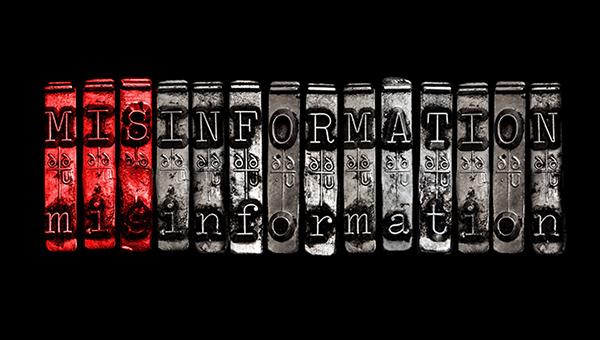 2. Reports of Sudden Deaths Among Athletes After COVID-19 Vax Are ‘Misinformation’
2. Reports of Sudden Deaths Among Athletes After COVID-19 Vax Are ‘Misinformation’
When we first caught wind of viral stories proliferating on social media about professional athletes dropping dead of sudden cardiac arrest after vaccination, we knew this was a story worth digging into. By this point we’d written plenty of articles probing the rare but real risk of myocarditis linked to mRNA vaccines (see below), but could this be causing the sudden deaths? TCTMD’s Todd Neale reached out to a range of sports cardiologists in Europe and the US, including several employed by major franchises—all said they weren’t aware of a single credible case of athletes dying from vaccine-related adverse effects and that the stories were “completely false information.”
3. From Cannabis to Opioids, Meth, and Cocaine: Drugs Are Linked to More AF
Prior research has revealed alcohol to be an atrial fibrillation (AF) trigger, but as recreational drug use becomes more prevalent and legislation more lenient, researchers felt it was time to look into any links between cannabis, methamphetamines, opioids, or cocaine and an increased risk of developing the arrhythmia. “We did approach this with an open mind and allowing for the possibility of a null effect, even potentially a protective effect on atrial fibrillation,” one researcher said. The popularity of this story likely also reflects a certain amount of noncardiologist googling.
4. PCI No Better Than GDMT in Ischemic Cardiomyopathy: REVIVED-BCIS2
Ever since the STICH 10-year results came out positive for surgery against optimal medical therapy for ischemic heart failure patients, interventionalists have raised the possibility that PCI might yield the same success, with less risk. Those hopes were dashed by REVIVED-BCIS2 results showing that revascularization should not be undertaken to treat and improve left ventricular dysfunction. “We wanted to see if we could deliver revascularization more safely and still provide the patient benefits,” lead investigator Divaka Perera, MD (King’s College London, England), said. “That [isn’t] the case.”
5. PROTECTED TAVR: No Less Stroke With Embolic Protection, but Some See Hope
For years people have pointed to the gunk in cerebral protection filters as proof that using them would stop debris from heading to the brain, thereby reducing stroke risk. Alas, PROTECTED TAVR did not deliver that hoped-for result. The trial missed its primary endpoint, failing to demonstrate a significant difference in the rate of stroke within 72 hours of the procedure or before discharge with the Sentinel cerebral protection system (Boston Scientific). Device use was associated with a lower rate of disabling stroke, a secondary endpoint for which the trial was not powered. As an editorial observed: “The ‘smoking gun’ of captured debris was not associated with high-quality evidence of stroke prevention.”
SEE ALSO: Prudence or Spin? Mulling Embolic Protection After PROTECTED TAVR
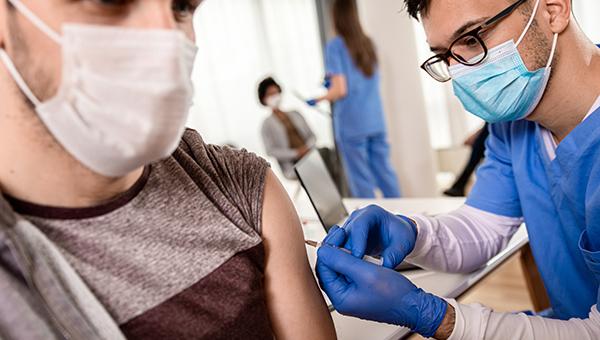 6. New Insights Into Myocarditis and mRNA COVID-19 Vaccines
6. New Insights Into Myocarditis and mRNA COVID-19 Vaccines
Cardiology-focused readers of TCTMD, as well as pretty much everyone else, paid close attention to the myocarditis signal ultimately confirmed as a rare but real risk of mRNA vaccines against COVID-19. Our news team covered every aspect of this evolving story including CDC deliberations and decisions, groups most at risk, comparative studies between vaccines, prognosis, second- and third-dose risks, disease time course, and importantly, the relative severity of vaccine-associated cardiac complications versus those linked to COVID itself. Of the bunch, this particular story ended up in our top 10.
7. Sizing Mismatch a Problem for Balloon-Expandable Valves in Small Annuli TAVI
This registry study, with just 3 years of follow-up, is a surprise contender on this list and likely speaks to the hunger for head-to-head data among TAVI aficionados (and possibly, some promotion by the manufacturer that came out ahead in the analysis). This snapshot from the FRANCE-TAVI registry focused on nearly 2,000 patients with small aortic annuli and hinted that a supra-annular self-expanding valve (Evolut R/Pro; Medtronic) might be better than a balloon-expandable device (Sapien 3; Edwards Lifesciences) in this subset of patients. Everyone, including the investigators, advised treating the results with caution until prospective studies are done.
 8. Pricey Inclisiran Is Rolling Out: a ‘Buy-and-Bill’ Model May Smooth Its Path
8. Pricey Inclisiran Is Rolling Out: a ‘Buy-and-Bill’ Model May Smooth Its Path
Inclisiran (Leqvio; Novartis), a therapy given just twice a year in the doctor’s office to lower LDL-cholesterol levels, was approved in the last week of 2021 after a protracted process, but as TCTMD’s Michael O’Riordan explored in this January feature, the drug was expected to face some hurdles. For one, the price tag of $6,500 per year would put it out of reach for many patients, while many questions remain as to who, where, and how the drug would be administered. Still, cardiologists said they expect this agent could be a game changer. Hard outcomes data from the 15,000-patient ORION-4 trial aren’t due out until 2026.
9. DELIVER Trial Scores a Win for Dapagliflozin in HFpEF
Back in May, drugmaker AstraZeneca announced positive top-line results for this eagerly anticipated trial of an sodium glucose cotransporter 2 (SGLT2) inhibitor showing its ability to reduce CV death or worsening HF in patients with heart failure and preserved ejection fraction (HFpEF). Full results were presented at the European Society of Cardiology 2022 Congress in Barcelona, accompanied by multiple simultaneous publications in different cardiology journals. A few weeks later, DELIVER findings were further fleshed out at the Heart Failure Society of America meeting, addressing the types and timing of events averted, as well as an oft-overlooked group of patients: those with improved ejection fraction (taking them out of the “reduced” EF category).
10. Both COVID-19 and Vaccination Raise the Risk of POTS
Throughout the pandemic, reports of people experiencing postural orthostatic tachycardia syndrome (POTS) as a long-COVID symptom have been on the radar of cardiologists; the syndrome surfaced again as a possible side effect of COVID-19 vaccination. In this observational study, the likelihood of getting diagnosed with POTS was about fivefold higher after a bout of COVID-19 itself than after vaccination. Asked about potential mechanisms to explain the findings, a study investigator said POTS is typically thought of as an issue with the autonomic nervous system, which maybe damaged by COVID-19, but it’s less clear how vaccination might be a trigger.
TOP FEATURES
Our longer-form features, we hope, give readers a unique glimpse into a topic they hadn’t previously considered, they dive deeper into clinical trial results to offer reactions (and polite skepticism), or they explore human interest stories that show the true breadth and depth of the unsung heroes who work in this space. These were some of the best of 2022.
From Mountains to Meds: A Grassroots Effort Is Restocking Cath Labs in Ukraine
As US Abortion Protections Are Lost, Cardiologists Brace for Impact
Climate Cardiology: If Not Now, When?
Sit Back, Relax . . . and Respond to an In-flight Medical Emergency?
Novel Targets, Gene Edits, and Vaccines: Is a ‘Golden Era’ Dawning for ASCVD?
Top Opinions
In addition to Editor’s Corner blogs like this one, we have our invitation-only Off Script blog featuring a range of voices, our Over the Wire blog by our Senior Clinical Editor Mamas Mamas, Fellow Talk by early career physicians, and our Conversations in Cardiology series, led by Morton Kern. Here are some of the most memorable opinions of the year gone by.
Conversations in Cardiology: For Physicians, How Old Is Too Old?
I Am Who I Am, Because I Am Ukrainian
Amid Civil War and COVID-19, Cardiology in Sudan Takes Courage and Hope
Beyond the Shining Lights and Science at ESC: Bullying Works in Shadows
Top Videos
What a joy to be back in studio, in person, talking with smart and thoughtful folks, rather than dealing with wobbly Zoom shadow backgrounds and mute buttons! Sit back and enjoy some of our top on-camera moments of 2022.
Beyond the Data: The REVIVED-BCIS2 Study
Personalized Medicine vs Public Health
Balancing Power Dynamics as a Cardiology Fellow
AHA @ TCT Hot-Take Session #3: Structural Heart disease – Improving and Innovating Valve Care
Shelley Wood was the Editor-in-Chief of TCTMD and the Editorial Director at the Cardiovascular Research Foundation (CRF) from October 2015…
Read Full Bio

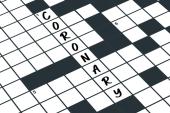
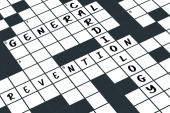
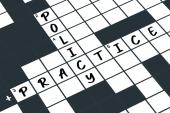
Comments